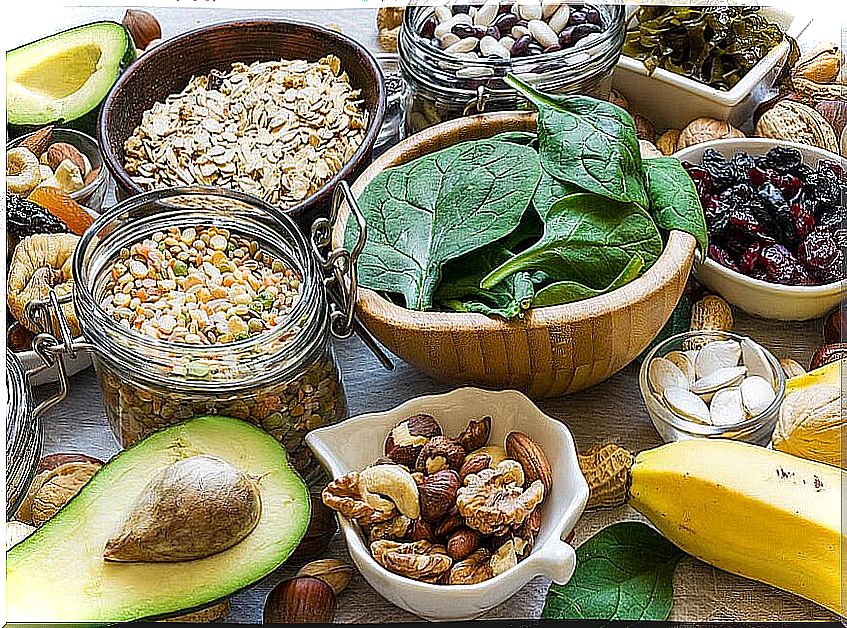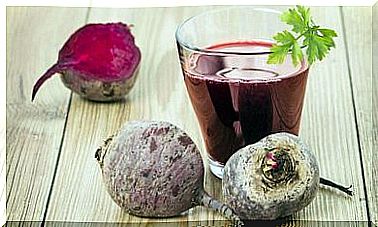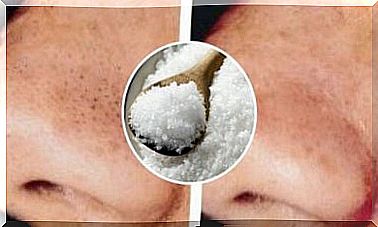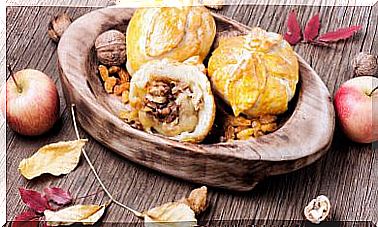What Is The Importance Of Potassium For The Body?
Potassium is the third most abundant mineral in the body. It is present in many foods of regular consumption and it is also considered an electrolyte, since, when dissolved in water, it produces positively charged ions. Why is it so important to the body?
According to information published in Seminars in Nephrology , 98% of potassium is found in cells. Of this, 80% is present in muscle cells, while the other 20% is distributed between the liver, bones and red blood cells. Therefore, it is decisive in many processes of the body.
Knowing that many underestimate or ignore its functions, this time we want to do a brief review of the benefits it brings . Also, we will highlight some of the foods that contain it.
Effects of potassium in the body
Potassium plays a very important role in health, as evidenced by research published through Advances in Nutrition . However, and according to this same text, in modern societies there is a deficit in its consumption, especially in Western diets, as these have reduced the consumption of fruits and vegetables, increasing the intake of processed foods. What is potassium for?
Contributes to maintaining heart health
This mineral is very important to maintain the balance between water and the rest of the minerals in the body. Many studies suggest that it is effective in reducing the risk of hypertension and other heart diseases.
This is explained because it increases the amount of sodium that is eliminated from the body and improves vascular volume. In addition, it is also interesting that many diets considered rich in this mineral seem to have lowering effects on the amount of cholesterol in the body.
In this way, as a study published in the Journal of the American College of Cardiology shows , not only does it help to reduce the risk of stroke, but it also helps prevent other vascular diseases.

Helps fight fluid retention
Fluid retention is a condition in which fluids build up in the body’s tissues. According to research published in the American Journal of Kidney Diseases , increased potassium intake can help combat this problem by increasing urine output and reducing sodium levels.
It is important for the nervous system
An optimal intake of potassium through the diet is essential to have a healthy nerve function. L os nerve impulses are generated by sodium ions moving into cells and potassium ions out of cells. The movement of these ions changes the cell’s voltage and activates the nerve impulse.
Unfortunately, a decrease in potassium levels leads to interference with the body’s ability to generate nerve impulses. Therefore, it is essential to obtain sufficient quantities.
Other notable benefits of potassium
In addition to the above , potassium is involved in other important functions of the body. Coinciding with the information published in a text in the scientific journal Physiologia Plantarum , other benefits of this mineral are:
- Decrease in mortality from heart disease.
- Prevention or delay of the progress of kidney disease.
- Decreased urinary calcium excretion and intervention in the treatment of hypercalciuria and kidney stones.
- Prevention of diabetes.
- Reduction of the risk of fatal ventricular arrhythmias in patients with ischemic heart disease, heart failure and left ventricular hypertrophy.
Main sources of potassium

Luckily, potassium-rich foods are plentiful. Many fruits and vegetables, with a high content of this component but few concentrations of sodium, are ideal for obtaining this important mineral. According to the SELF Nutrition Data published food list , some main sources of potassium are:
- Cooked beetroot
- Baked yams
- Cooked pinto beans
- Baked white potatoes
- Grilled Portobello Mushrooms
- Avocado
- Baked sweet potato
- Cooked spinach
- Kale
- Cooked salmon
- Bananas
- Cooked peas
Fortunately, the variety of sources of this mineral allows us to mix them creatively when preparing our food. Thus, we will be favoring a balanced and healthy diet through its regular consumption. If you fear having deficiencies in this mineral, consult your doctor or nutritionist.









